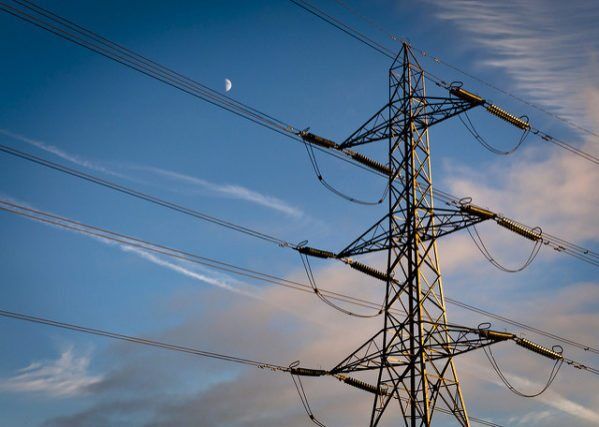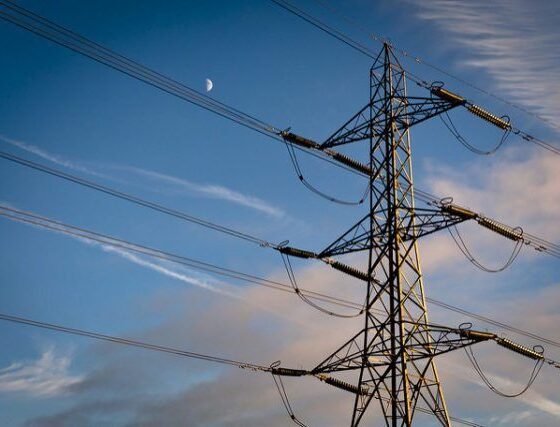

Energy
New Home Battery Trial Aimed At Enabling Solar Homes And Saving Millions
A pioneering trial demonstrating the capacity of clusters of home batteries to increase capacity on the electricity network and enable more homes to install solar panels is being launched by Moixa, Northern Powergrid and Energise Barnsley.
Moixa Smart Batteries will be installed in 40 homes and linked in a virtual power plant in the first project to study how this solution can reduce peak solar output onto the electricity networks when there is low local demand and save customers millions in the cost of running the UK’s power network.
Electricity distributor Northern Powergrid, is funding installation of the batteries in Oxspring, near Barnsley, in properties owned by Barnsley Council and managed by Berneslai Homes. Community energy company Energise Barnsley has rolled out solar to homes in the area but came up against some network constraints in the village which meant that five houses could not be connected within the timescales of the project. The trial will include all 30 homes in the housing estate with solar PV panels plus 10 others without.
We believe we can significantly reduce peak solar generation output onto the network
Simon Daniel, CEO of Moixa, said: “Batteries will allow the electricity system to support much higher levels of low-carbon renewable power and increase UK energy independence. By managing clusters of home batteries in a virtual power plant and allowing homeowners to use more of their solar energy, thereby exporting less, we believe we can significantly reduce peak solar generation output onto the network. This will allow more homes to go solar without imposing new costs on network operators.
“Solar homes with batteries can halve their electricity bills, and this solution will become increasingly popular as costs of storage and PV fall. We are working closely with Northern Powergrid and this project will deliver insights to develop incentives which we hope will allow us to roll out solar plus storage to tens of thousands of homes in their region, by creating a business case for homeowners to invest and also by increasing the number of solar connections allowed on each substation.”
The £250,000 trial will seek to demonstrate that the virtual power plant can reduce peak solar output onto the network sufficiently to enable panels to be installed on more homes using existing substations and cable networks. If successful, Northern Powergrid believes UK network operators could save millions for customers by reducing the need to upgrade infrastructure, which will help ensure network-related charges on customers’ electricity bills remain good value. The trial will also feed into national design guidance for low voltage networks supplying housing estates.
Andrew Spencer, System Planning Manager for Northern Powergrid, said: “This partnership is one of a number of ways we’re working to explore innovations that can benefit our customers and the communities we serve.
“Batteries will play a key role in the smart energy system of the future, keeping costs down for customers whilst allowing the power network to support greater concentrations of solar power. This innovative project will provide valuable data on how the inclusion of batteries in solar schemes can enable our designers to connect more PV panels before further network reinforcement is required.”
The first batteries will be installed at the end of January and will cost residents nothing. Solar panels typically cut electricity bills by up to 30% and batteries can add further savings of up to 20% by allowing residents to use free energy generated during the day at night.
Moixa will manage the cluster of batteries to reduce peak generation output onto Northern Powergrid’s local electricity network by storing solar electricity instead of exporting it to the grid. Its software includes ‘learning algorithms’ which respond to solar generation, electricity network needs and each user’s behaviour to maximise the benefits of storage.
By linking the batteries in a virtual power plant Moixa will also be able to provide services that make the wider electricity grid more efficient, greener and cheaper to run, such as maintaining a stable frequency, so reducing the need for back-up power from coal, oil and gas. Residents will also receive a share of income from Moixa for these grid services.
The growth of renewable power has put increasing pressures on the network because it must be able to cope with maximum generation on a windy or sunny day at times when demand is low. This has created constraints in some areas where homes with solar panels are clustered and existing infrastructure cannot cope with more peak generation without costly upgrades. In many parts of the country social landlords wanting to install solar panels on their estates have had to wait to connect the final few properties on their projects until the local electricity network is reinforced to accommodate the full scheme output.
Andy Heald, Director of Energise Barnsley said that they had only been able to install solar PV on two in three homes in the area as planned because of existing grid constraints, while in a project in Carmarthenshire only 37% could connect.
The community energy company works with local authorities around the country to develop rooftop solar energy and owns the panels on Berneslai’s homes. “Solar power is a key part of Barnsley council’s plan to reduce high levels of fuel poverty in the region. Battery costs are falling rapidly and storage has huge potential to accelerate the national roll-out of solar and improve the lives of vulnerable people,” said Mr Heald.
He said solar was of particular benefit to elderly people who are at home and using electricity during the day, like many of the residents in the Oxspring trial. Some people with solar panels were saving up to 50% on their energy bills and he believed batteries could take this as high as 80%.
Stephen Davis, Director of Assets, Regeneration and Construction, for Berneslai Homes, said: “We are keen to explore the savings potential that battery storage can bring to our tenants’ energy bills. Our tenants face ever increasing energy costs from the energy suppliers they buy their electricity from and solar panels coupled with battery technology have the potential to ease some of that cost.”


 Environment12 months ago
Environment12 months agoAre Polymer Banknotes: an Eco-Friendly Trend or a Groundswell?

 Features11 months ago
Features11 months agoEco-Friendly Cryptocurrencies: Sustainable Investment Choices

 Features12 months ago
Features12 months agoEco-Friendly Crypto Traders Must Find the Right Exchange

 Energy11 months ago
Energy11 months agoThe Growing Role of Solar Panels in Ireland’s Energy Future



























